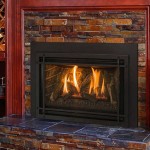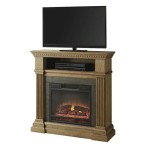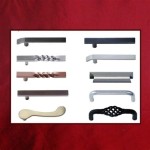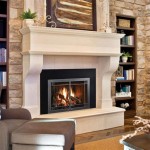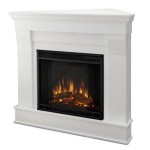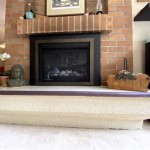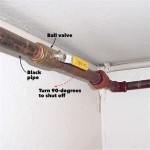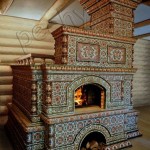Understanding and Addressing Gas Fireplace Smells
Gas fireplaces offer a convenient and aesthetically pleasing alternative to traditional wood-burning fireplaces. They provide warmth and ambiance without the hassle of wood storage and ash cleanup. However, gas fireplaces can sometimes emit unpleasant odors, causing concern for homeowners. Understanding the potential causes of these smells is crucial for proper diagnosis and resolution. This article explores common reasons for gas fireplace odors and outlines steps that can be taken to address them.
New Fireplace Burn-Off
One of the most frequent causes of odors emanating from a new gas fireplace is the burn-off of manufacturing residues. During the manufacturing process, various oils, paints, and lubricants are applied to the fireplace components. When the fireplace is first operated, these substances heat up and vaporize, releasing distinct odors. This is a normal occurrence and typically dissipates after a few hours of use.
The type of smell associated with new fireplace burn-off can vary depending on the specific materials used in manufacturing. It might be characterized as a plastic-like smell, a burning rubber smell, or a chemical odor. The intensity of the smell can also vary depending on the duration and temperature of the initial burns. It is advisable to ventilate the room well during the initial burn-off period by opening windows and doors. Running a fan can also help to circulate the air and expedite the removal of the odors.
If the odor persists for more than a few uses, or if it becomes excessively strong or irritating, it is prudent to consult with a qualified gas fireplace technician. While burn-off is a common occurrence, it is important to rule out any underlying problems that might be contributing to the smell. The technician can inspect the fireplace for any manufacturing defects or installation errors that may be causing the issue.
Dust and Debris Accumulation
Another common cause of gas fireplace smells is the accumulation of dust and debris within the fireplace unit. Over time, dust, pet hair, and other airborne particles can settle on the burner, logs, and other internal components. When the fireplace is ignited, these accumulated materials can burn, producing a distinctive burnt dust or musty odor.
Regular cleaning and maintenance are essential to prevent dust and debris buildup. Before cleaning, ensure the gas supply is turned off and the fireplace is completely cool. Use a soft brush or vacuum cleaner with a brush attachment to remove dust from the burner, logs, and surrounding areas. Pay particular attention to the small crevices and hard-to-reach areas where dust tends to accumulate. Avoid using harsh chemicals or abrasive cleaners, as these can damage the fireplace components.
It is also important to inspect the fireplace vent for any obstructions. Birds, rodents, or insects can sometimes build nests in the vent, which can restrict airflow and contribute to odor problems. Regularly check the vent opening and remove any debris or obstructions that might be present. If the vent is inaccessible or if you suspect a significant blockage, it is best to contact a qualified HVAC technician for assistance.
For fireplaces that are used infrequently, it may be beneficial to cover them when not in use to prevent dust from settling inside. A fireplace screen or cover can help to minimize the amount of dust and debris that accumulates, reducing the likelihood of odor issues.
Gas Leaks
While less common than burn-off or dust accumulation, gas leaks are a serious potential cause of gas fireplace odors. Natural gas and propane are odorless in their natural state, so gas companies add a chemical called mercaptan to give them a distinct smell similar to rotten eggs. This allows for easy detection in the event of a leak.
If you smell a rotten egg odor emanating from your gas fireplace, it is crucial to take immediate action. Do not operate the fireplace or any other gas appliances. Extinguish any open flames and avoid using electrical switches or devices, as these could potentially ignite the gas. Open windows and doors to ventilate the area and evacuate the building immediately. Once outside, call your local gas company or emergency services from a neighbor's phone or a safe location.
Do not re-enter the building until the gas company or emergency services have determined that it is safe to do so. They will use specialized equipment to detect and repair any gas leaks. Gas leaks can be extremely dangerous and can lead to explosions or carbon monoxide poisoning. It is essential to take any suspected gas leak seriously and to follow the proper safety procedures.
Regular inspection of gas lines and connections is an important preventative measure. A qualified gas fireplace technician can inspect the gas lines for any signs of corrosion, damage, or leaks. They can also check the fittings and connections to ensure that they are properly tightened and sealed. Early detection of gas leaks can prevent serious accidents and protect your family and property.
Propane vs. Natural Gas Conversion Issues
Gas fireplaces are typically designed to operate using either natural gas or propane. Converting a fireplace from one type of gas to the other requires specific modifications to the burner, gas valve, and other components. If a conversion is not performed correctly, it can lead to incomplete combustion and the release of unburned gas, resulting in a distinct odor.
The smell associated with incomplete combustion can vary depending on the specific gases involved and the extent of the problem. It might be described as a sulfurous odor, a chemical smell, or simply a stronger-than-normal gas odor. Incomplete combustion can also produce carbon monoxide, a colorless and odorless gas that is highly toxic.
It is essential to ensure that any gas fireplace conversion is performed by a qualified gas technician who is certified and experienced in working with both natural gas and propane systems. The technician will need to properly adjust the gas pressure, orifice size, and other settings to ensure that the fireplace is operating safely and efficiently with the new fuel source. After the conversion is complete, the technician should test the fireplace to verify that it is burning cleanly and that there are no signs of incomplete combustion or gas leaks.
If you suspect that your gas fireplace has been improperly converted or if you notice any unusual odors after a conversion, it is important to contact a qualified technician immediately. Do not attempt to diagnose or repair the problem yourself, as this could be dangerous. A qualified technician will have the knowledge and tools necessary to identify and correct any problems, ensuring that your fireplace is operating safely and efficiently.
Combustion Byproducts and Ventilation
Even with proper installation and maintenance, gas fireplaces produce combustion byproducts, including carbon dioxide, water vapor, and small amounts of nitrogen dioxide. In most cases, these byproducts are safely vented to the outside through the fireplace flue. However, if the flue is blocked or restricted, or if there is inadequate ventilation in the room, these byproducts can accumulate, leading to odor problems.
The smell associated with combustion byproducts can vary depending on the concentration and composition of the gases. It might be characterized as a stale, musty odor or a slightly acrid smell. In addition to odor problems, inadequate ventilation can also lead to moisture buildup in the room, which can contribute to mold growth and other indoor air quality issues.
Regular inspection and maintenance of the fireplace flue are essential to ensure proper ventilation. Check the flue for any obstructions, such as bird nests, leaves, or other debris. Ensure that the flue is properly connected and sealed to prevent leaks. If you suspect that the flue is blocked or restricted, contact a qualified HVAC technician for assistance. They can perform a thorough inspection of the flue and recommend any necessary repairs or cleaning.
Proper ventilation in the room is also important to prevent the buildup of combustion byproducts. Ensure that there is adequate airflow in the room by opening windows or doors or by using a ventilation fan. Avoid blocking or covering air vents, as this can restrict airflow and contribute to ventilation problems. If you have concerns about indoor air quality, consider installing a carbon monoxide detector to monitor the levels of this dangerous gas.
Foreign Objects Burning Inside the Fireplace
Occasionally, foreign objects can inadvertently fall into the gas fireplace and burn, producing unpleasant odors. This can include anything from small toys or pieces of paper to larger items that may have been placed too close to the fireplace.
The type of smell produced will depend on the material that is burning. Paper or cardboard might produce a burning paper smell, while plastic or rubber could produce a much stronger, more acrid odor. In some cases, the burning object may also release harmful fumes or toxins, posing a health risk.
Carefully inspect the fireplace regularly to ensure that no foreign objects have fallen inside. Pay particular attention to the area around the burner and logs, as these are the most likely places for objects to accumulate. Remove any objects that you find immediately. Educate children about the dangers of placing objects near the fireplace and keep flammable materials away from the unit.
If a foreign object has already burned inside the fireplace, ventilate the room thoroughly to remove any lingering odors or fumes. Clean the inside of the fireplace to remove any residue or debris. If the burning object has caused any damage to the fireplace components, contact a qualified gas fireplace technician for inspection and repair.

Here S Why Your Gas Fireplace Stinks Full Service Chimney

Vent Free Fireplace Odor

Here S Why Your Gas Fireplace Stinks Full Service Chimney

How To Get Rid Of Fireplace Smell Vertical Chimney Care

Why Your Gas Fireplace Stinks Chimney Experts

Gas Fireplace Odor

Vent Free Fireplace Odor

Here S Why Your Gas Fireplace Stinks Full Service Chimney

Why Does My Gas Fireplace Smell Like Kerosene Hunker

Six Reasons Why Your Fireplace Smells Bad We Love Fire

